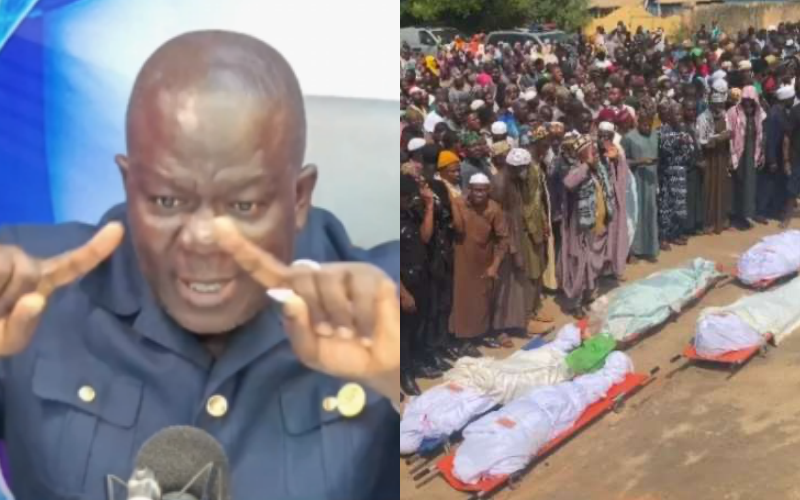The recent clash between local youth and military personnel at the AngloGold Ashanti mining site in Obuasi, Ghana, has ignited a firestorm of controversy and debate, raising critical questions about the use of force, the underlying socio-economic factors driving such conflicts, and the responsibilities of both the authorities and the community in preventing further tragedies. Nana Agyenim Boateng, also known as Gyataba, the Founder and Leader of the United Front Party (UFP), has weighed in on the incident, characterizing the actions of the youth as “terroristic” and condemning their apparent willingness to confront the military. This provocative statement has further fueled the already heated public discourse surrounding the event.
Gyataba’s assertion that the youth acted like “terrorists” centers on their perceived preparedness to engage the military. He argues that their actions were not those of ordinary protesters but of individuals who consciously chose a path of confrontation, escalating the situation and ultimately leading to the tragic loss of life. While acknowledging the underlying grievances that may have motivated the youth, Gyataba emphasizes that their approach was fundamentally flawed and counterproductive. He calls for a period of reflection within the community, urging youth leaders and community elders to guide the younger generation towards more peaceful and constructive means of expressing their discontent and pursuing their goals.
The Obuasi incident highlights the complex interplay of factors at play in such conflicts. The presence of a multinational mining company like AngloGold Ashanti in a resource-rich area often creates tensions between the company, the local community, and the government. Issues such as land rights, environmental concerns, employment opportunities, and the equitable distribution of benefits arising from mining activities can become flashpoints for conflict. When these grievances are not adequately addressed, they can simmer and eventually boil over into open confrontations.
The response of the military in such situations is also a matter of intense scrutiny. While the military may be deployed to maintain order and protect property, the use of lethal force should always be a last resort. Questions arise about whether the military adhered to established protocols for engagement and whether the use of deadly force was proportionate to the threat posed by the youth. Independent investigations into such incidents are crucial to establish the facts, determine accountability, and prevent future occurrences.
The tragic events in Obuasi underscore the urgent need for proactive and comprehensive strategies to address the underlying socio-economic issues that fuel these conflicts. Dialogue between the mining company, the local community, and government representatives is essential to build trust, understand grievances, and find mutually acceptable solutions. Investing in local development initiatives, creating employment opportunities, and ensuring that the benefits of mining activities are shared equitably can contribute to a more stable and peaceful environment.
Furthermore, empowering local communities through education and skills development programs can equip them with the tools to advocate for their rights and participate effectively in decision-making processes that affect their lives. Promoting peaceful conflict resolution mechanisms and fostering a culture of dialogue within communities can also help prevent grievances from escalating into violence. Ultimately, building a sustainable and peaceful future in communities impacted by mining activities requires a multi-faceted approach that addresses both the immediate concerns and the long-term development needs of the local population. The tragic incident in Obuasi serves as a stark reminder of the human cost of unresolved conflict and the urgent need for proactive and collaborative solutions.














